Choosing the right dog food for small breeds is essential. These tiny companions have unique dietary needs that differ from larger dogs.
Small breed dogs often have faster metabolisms and need food that supports their energy levels. They also require smaller kibble sizes to make eating easier. With so many options available, selecting the best food can be overwhelming. Proper nutrition plays a vital role in their health, longevity, and happiness.
High-quality dog food can help prevent common health issues in small breeds. Understanding what to look for in dog food will ensure your furry friend gets the nutrition they deserve. This guide will help you make an informed choice for your small breed dog’s diet.
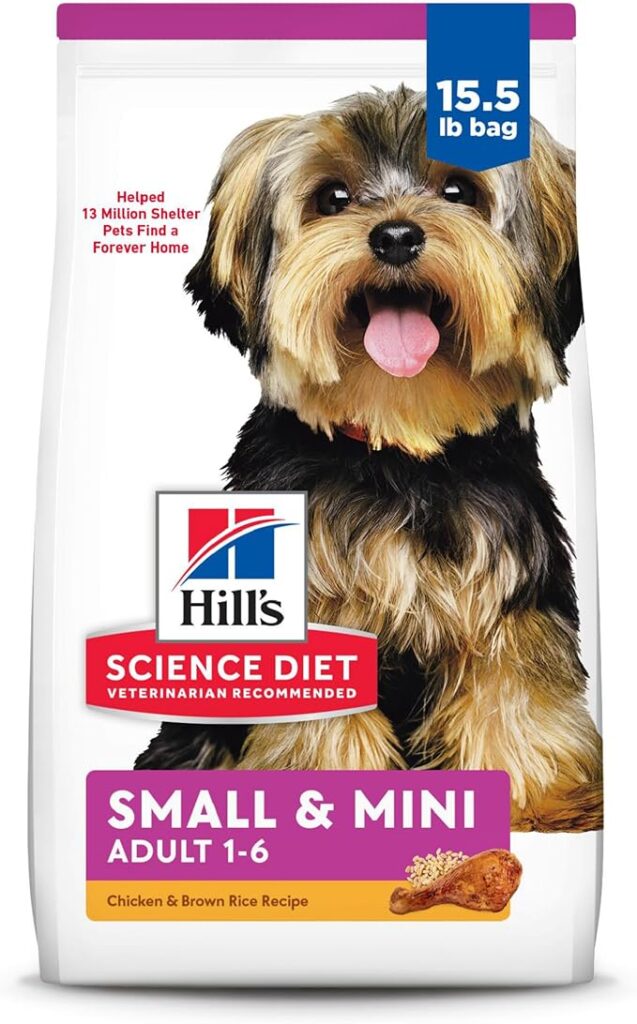
Table of Contents
Benefits Of Small Breed Dog Food
Small breed dogs have unique needs. Choosing the right dog food small breed is essential. Small breed dog food offers many benefits. These foods cater to their specific nutritional needs. They also support their high energy levels. Understanding these advantages helps you choose the best food for your furry friend.
Nutritional Needs
Small breed dogs require a specific diet. Their bodies are different from larger breeds. They need more calories per pound of body weight. This is because they have higher metabolisms. A well-balanced dog food for small breeds is crucial. It should include:
- High-quality protein: Essential for muscle growth.
- Healthy fats: Important for energy and coat health.
- Vitamins and minerals: Support overall health and immunity.
- Antioxidants: Help fight free radicals in their bodies.
Look for dry dog food for small dogs that meets these needs. Here is a table showing key ingredients to consider:
| Ingredient | Benefit |
| Chicken or Beef | High in protein for strong muscles. |
| Fish Oil | Supports skin and coat health. |
| Brown Rice | Good source of carbohydrates for energy. |
| Vegetables | Provides essential vitamins and minerals. |
Choosing the right small breed dry dog food ensures your pet stays healthy. Look for foods that list these ingredients first.
Energy Levels
Small breed dogs are often energetic. They require more calories than larger dogs. This is vital for their daily activities. Dog food small breed should have enough energy to keep up with their playful nature.
Small breed dry dog food should focus on energy-rich ingredients. Here are some key points:
- High-calorie content: Ensures they have enough energy.
- Easy-to-digest ingredients: Helps with quick energy release.
- Frequent meals: Smaller portions throughout the day support their metabolism.
Consider these factors for maintaining energy:
- Choose foods with high protein and fat content.
- Ensure they have regular feeding times.
- Monitor their activity levels to adjust food intake.
Healthy dog food for small breeds keeps them active and happy. Proper nutrition helps them enjoy life to the fullest.
Ingredients To Look For
Choosing the right dog food for small breeds is essential for their health. Small breed dogs have unique dietary needs. These needs include specific ingredients to support their energy levels and overall well-being. Knowing what to look for in dog food can make a big difference. This section will highlight key ingredients to consider when selecting dog food small breed.
High-quality Proteins
Proteins are crucial for small breed dogs. They provide the building blocks for muscles and tissues. Look for high-quality protein sources in small breed dog food. These sources should be named meats or fish, like chicken, beef, or salmon. They help support a healthy metabolism and energy levels. Avoid vague terms like “meat by-products” or “animal meal.” These can come from low-quality sources.
Here are some good protein sources to look for:
- Chicken
- Turkey
- Beef
- Fish
- Lamb
Check the ingredient list. The first ingredient should ideally be a protein source. This ensures your dog gets enough protein for strength and energy. Small breed dry dog food should have around 20-30% protein content. This amount helps maintain a healthy weight and supports growth.
| Protein Source | Benefits |
| Chicken | Rich in amino acids, supports muscle health. |
| Fish | High in omega-3 fatty acids, good for skin and coat. |
| Lamb | Great for dogs with allergies, highly digestible. |
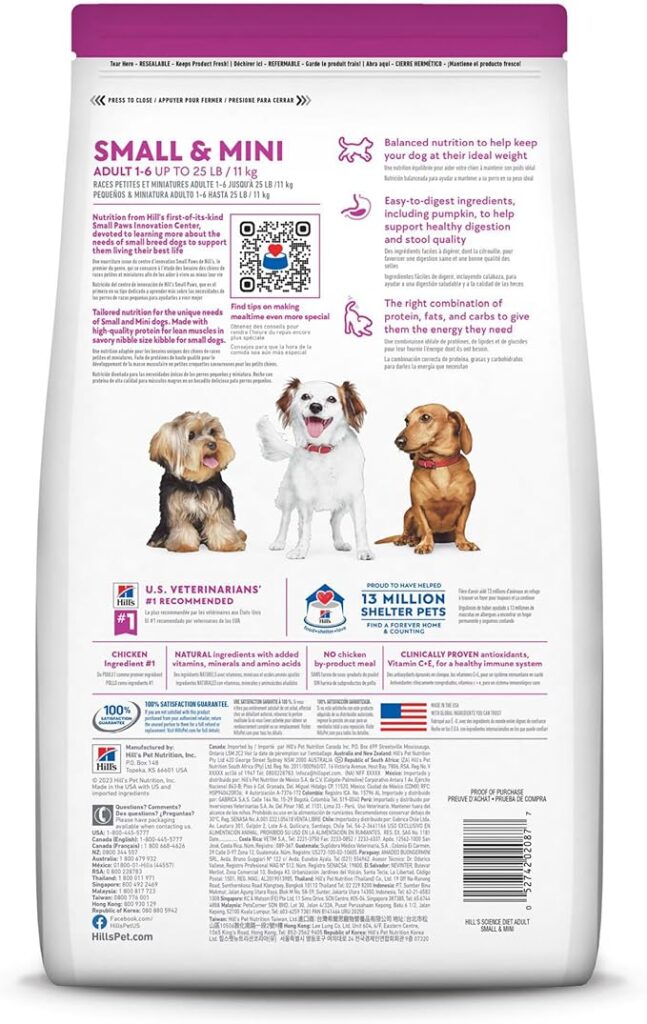
Healthy Fats
Fats are another important ingredient in dog food for small breeds. They provide energy and help absorb vitamins. Healthy fats also keep your dog’s coat shiny and skin healthy. Look for sources like fish oil, chicken fat, or flaxseed oil. These fats are beneficial for small dogs.
Here are some healthy fat sources:
- Fish oil
- Flaxseed oil
- Chicken fat
- Sunflower oil
Healthy fats should make up about 8-15% of your dog’s diet. Too much fat can lead to weight gain. Always read the label. Ensure the fat sources are named and not vague. For example, “chicken fat” is better than “animal fat.”
Choosing the right fats helps maintain energy levels and keeps small breed dogs active. Proper nutrition leads to a happier, healthier life.
Common Allergens In Dog Food
Choosing the right dog food for small breeds is crucial for their health and happiness. One important aspect to consider is allergens in dog food. Allergens can cause various reactions in dogs, affecting their skin, digestion, and overall well-being. Understanding common allergens helps you make informed choices about the best dog food small breed options. This ensures your small dog thrives on a balanced diet.
Grains
Grains are a common ingredient in many dog foods, including small breed dry dog food. While grains provide energy and some nutrients, they can also be allergens for some dogs. Here are some common grains found in dog food:
- Wheat
- Barley
- Rice
- Oats
Some dogs, especially small breeds, may develop sensitivities to these grains. Symptoms of grain allergies include:
- Itchy skin
- Digestive issues
- Ear infections
Choosing dry dog food for small dogs that is grain-free can help avoid these issues. Many brands offer small breed dog food that replaces grains with alternative ingredients, like:
- Sweet potatoes
- Peas
- Legumes
This switch can lead to a healthier diet for your dog. Always check the ingredient list when selecting dog food for small breeds.
Artificial Additives
Artificial additives are another potential allergen in dog food. These include colors, flavors, and preservatives added to enhance taste and appearance. While some dogs tolerate these additives well, others may react negatively. Common artificial additives include:
- BHA (Butylated Hydroxyanisole)
- BHT (Butylated Hydroxytoluene)
- Propylene Glycol
- Artificial colors (like Red 40, Yellow 5)
Reactions to these additives can vary. Dogs may experience:
- Stomach upset
- Skin irritations
- Behavior changes
When selecting small breed dry dog food, look for brands that use natural ingredients. This ensures your dog avoids harmful additives. Choosing dog food for small breeds with minimal or no artificial ingredients can promote better health.
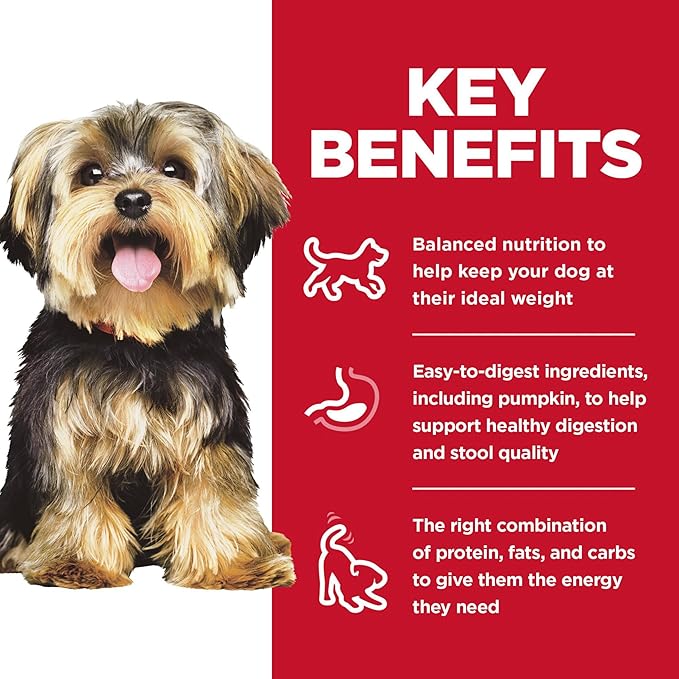
Top Brands For Small Breeds
Choosing the right dog food for small breeds is essential for their health and happiness. Small dogs have unique nutritional needs. They require food that supports their energy levels and overall well-being. Many brands offer options specifically designed for small breeds. Knowing which brands stand out can help you make the best choice for your furry friend. Here, we explore the top brands for dog food small breed.
Premium Options
Premium dog food for small breeds often contains high-quality ingredients. These foods usually offer better nutrition and taste. Here are some top premium brands:
- Royal Canin: Specializes in breed-specific formulas.
- Hill’s Science Diet: Focuses on balanced nutrition.
- Wellness Core: Grain-free options with high protein.
These brands use real meat, veggies, and fruits. They avoid fillers and artificial ingredients. Below is a comparison of some premium options:
| Brand | Key Ingredients | Special Features |
| Royal Canin | Chicken, rice, corn | Breed-specific formulas |
| Hill’s Science Diet | Chicken, barley, peas | Veterinary recommended |
| Wellness Core | Turkey, chicken, potatoes | High protein, grain-free |
Choosing premium small breed dry dog food can help with digestion and coat health. These foods often lead to healthier, happier pets.
Budget-friendly Choices
Not everyone can spend a lot on dog food. Luckily, there are budget-friendly choices for small breeds. These options still provide good nutrition without breaking the bank. Here are some popular brands:
- Purina Pro Plan: Affordable with quality ingredients.
- Pedigree: Widely available and cost-effective.
- Blue Buffalo Basics: Good for sensitive stomachs.
These brands offer small breed dog food at a lower cost. They may not have the same premium ingredients, but they still provide balanced nutrition. Consider the following points:
- Check the ingredient list for real meat.
- Look for added vitamins and minerals.
- Avoid fillers like corn and soy.
Many budget options come in dry dog food for small dogs. They help maintain your dog’s health without a high price tag. Feeding your small dog well does not have to be expensive.
Homemade Dog Food Recipes
Making homemade dog food for small breeds can be a rewarding way to ensure your pet gets the best nutrition. Small dogs have unique dietary needs. Their food must be balanced and easy to digest. Homemade recipes allow you to control the ingredients. You can tailor meals for your dog’s specific tastes and health needs. This is especially important for small breed dogs that can have sensitive stomachs.
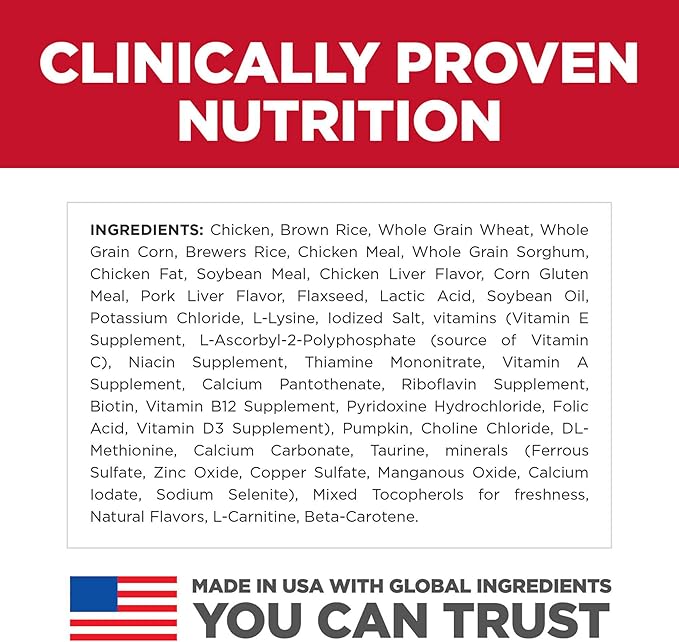
Simple Ingredients
Using simple ingredients is key to making healthy dog food. Choose fresh, whole foods that are safe for dogs. Here are some common ingredients:
- Lean meats: Chicken, turkey, and beef are excellent sources of protein.
- Vegetables: Carrots, peas, and sweet potatoes provide vitamins and fiber.
- Grains: Brown rice and oats are good sources of carbohydrates.
- Healthy fats: Fish oil or flaxseed oil support skin and coat health.
These ingredients are easy to find. They offer great nutrition for small breed dog food. Here’s a simple recipe:
| Ingredient | Amount |
| Ground turkey | 1 pound |
| Brown rice | 1/2 cup |
| Carrots (chopped) | 1/2 cup |
| Peas (frozen) | 1/2 cup |
| Fish oil | 1 tablespoon |
Cook the turkey in a pan. Add the rice, carrots, and peas. Stir in the fish oil. Let it cool before serving.
Balanced Nutrition
Balanced nutrition is essential for small breed dogs. Their small bodies need the right mix of proteins, fats, and carbohydrates. Homemade dog food can meet these needs well. Here’s how to ensure balanced meals:
- Protein: Aim for 40% of the diet from protein sources.
- Carbohydrates: Include 50% from grains and vegetables.
- Fats: Keep fats around 10% for energy and healthy skin.
Consider your dog’s age and activity level. Puppies need more protein for growth. Active dogs also require more calories. Adjust portions based on these factors. Tracking your dog’s weight helps ensure they remain healthy.
Here’s a sample balanced meal plan for a small breed dog:
| Meal Type | Ingredients |
| Breakfast | 1/4 cup small breed dry dog food + 1/4 cup cooked chicken |
| Lunch | 1/4 cup brown rice + 1/4 cup mixed vegetables |
| Dinner | 1/4 cup dog food for small breeds + 1/4 cup ground turkey |
This plan provides balanced nutrition. It combines dry dog food for small dogs with fresh ingredients.
Feeding Guidelines
Feeding guidelines for small breed dogs are essential for their health and happiness. Small breed dogs have unique nutritional needs. They often require more energy-dense food compared to larger breeds. Understanding portion sizes and meal frequency can greatly affect their overall well-being. Proper feeding ensures that your dog stays active, healthy, and maintains an ideal weight.
Portion Sizes
Portion sizes are crucial for small breed dogs. These dogs have small stomachs and high metabolisms. Overfeeding can lead to obesity and other health issues. Follow these tips for accurate portion sizes:
- Check the packaging of your dog food.
- Use a measuring cup for accuracy.
- Consider your dog’s age, weight, and activity level.
Here is a general guideline for portion sizes based on weight:
| Weight of Dog | Daily Portion (dry dog food for small dogs) |
| 5-10 lbs | 1/4 to 1/2 cup |
| 10-15 lbs | 1/2 to 3/4 cup |
| 15-20 lbs | 3/4 to 1 cup |
These amounts can vary based on the specific small breed dry dog food you choose. Always consult your veterinarian for personalized advice.
Frequency Of Meals
The frequency of meals is just as important as portion sizes. Small breed dogs benefit from eating smaller meals more often. This method can help with digestion and prevent bloating. Here are some common feeding schedules:
- Puppies: 3 to 4 meals per day.
- Adult dogs: 2 meals per day.
- Senior dogs: 2 meals per day, but consider their health needs.
Feeding at regular times helps create a routine. It also allows you to monitor your dog’s eating habits. Watch for any changes in appetite, as they can signal health issues. Use high-quality dog food for small breeds to keep them energized. Establishing a consistent feeding routine helps maintain their weight and overall health.
Transitioning Dog Foods
Choosing the right dog food for small breeds is important for their health. Transitioning dog foods requires care. A small change can upset their stomach. Follow the right steps to ensure a smooth switch. Small breed dogs have unique needs. They need food that is high in nutrients and easy to digest. Learning how to transition properly helps keep your dog happy and healthy.
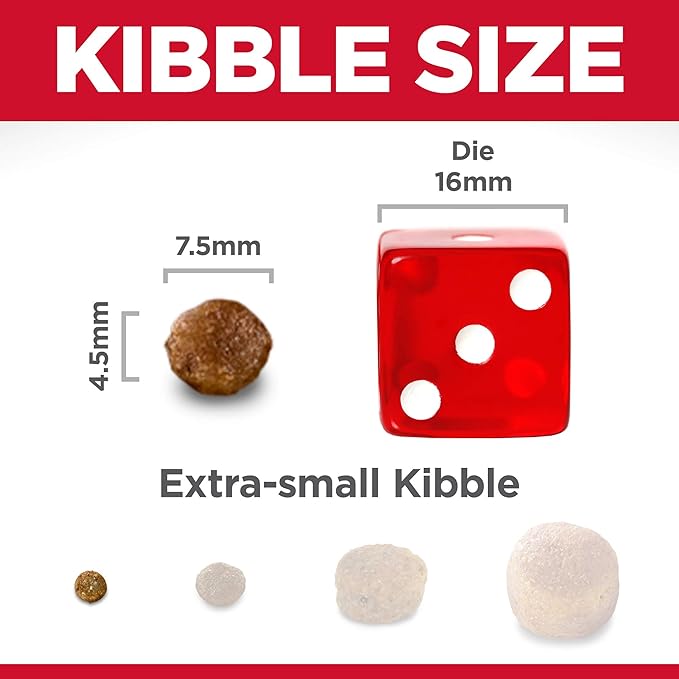
Slow Introduction
Start by introducing the new dog food slowly. This prevents digestive upset. A gradual change allows your small breed dog to adjust. Here’s a simple plan to follow:
- Days 1-3: Mix 25% new food with 75% old food.
- Days 4-6: Mix 50% new food with 50% old food.
- Days 7-9: Mix 75% new food with 25% old food.
- Day 10: Feed 100% new food.
This method is gentle and effective. Small breed dry dog food can be different in texture and flavor. Dogs may be picky eaters. A slow introduction helps them get used to it.
Keep an eye on your dog during this process. Look for any signs of upset stomach. Signs may include:
- Vomiting
- Diarrhea
- Lack of appetite
Using this slow introduction method helps avoid these issues. It makes the transition easier for your furry friend. Each dog is different, so adjust as needed.
Monitoring Reactions
During the transition, monitor your dog’s reactions closely. Watch for any changes in behavior or health. Small breed dogs can react differently to new foods. Here are some things to check:
| Reaction | What to Do |
| Vomiting | Stop the new food. Return to the old food. |
| Diarrhea | Mix in more of the old food. Slow down the transition. |
| Loss of Appetite | Try mixing in some wet food. Make it more appealing. |
Keep a journal of your dog’s reactions. Note any issues during the transition. This record helps you understand what works best. Always consult your vet if concerns arise.
Remember, every dog is unique. Some may adapt quickly, while others take longer. Be patient during this time. A successful transition to dog food for small breeds leads to a happier, healthier dog.
Signs Of Quality Dog Food
Choosing the right dog food for small breeds is vital for their health and happiness. Quality dog food can make a big difference. It provides essential nutrients and supports their unique needs. Signs of quality dog food include clear ingredient lists and trustworthy certifications. Understanding these signs helps you make informed choices for your furry friend.
Ingredient Transparency
Ingredient transparency means knowing what is in your dog food. Quality dog food for small breeds has clear and honest labels. Here are some key points to consider:
- Whole ingredients: Look for real meat as the first ingredient. It should be specific, like chicken or beef.
- No fillers: Avoid dog food that contains fillers like corn or soy. These ingredients provide little nutritional value.
- Named sources: Ingredients should list specific sources, such as “chicken meal” instead of just “meat meal.”
Many brands provide detailed information about their ingredients. This helps you know what your small dog is eating. Here’s a simple table showing good and bad ingredients:
| Good Ingredients | Bad Ingredients |
| Chicken, Turkey, Fish | Meat by-products, Corn, Soy |
| Brown rice, Sweet potatoes | Artificial colors, Preservatives |
| Fruits and vegetables | Unknown animal parts |
Small breed dry dog food should focus on high-quality ingredients. This ensures your dog gets the best nutrition possible.
Certifications
Certifications show that dog food meets specific quality standards. Many trusted organizations check pet food for safety and nutrition. Look for the following certifications:
- AAFCO: This organization sets the nutritional standards for pet food.
- NSF International: This ensures products meet strict safety and quality standards.
- Pet Food Institute: This group represents pet food manufacturers and promotes good practices.
Choosing dog food for small breeds with these certifications helps ensure quality. Check the packaging for these labels. They provide peace of mind about what your dog eats. Remember, quality dry dog food for small dogs can support their health.
Not all brands will have these certifications. However, those that do usually prioritize quality. Always research brands before making a purchase. A little effort goes a long way in keeping your small dog healthy.
Common Health Issues
Dog food small breed is specially designed for smaller dogs. These dogs have unique needs. They require specific nutrients to stay healthy. Understanding common health issues is vital. Small dogs can face several health problems related to their diet. Being aware of these issues can help owners make better choices.
Obesity Risks
Obesity is a significant health issue for small breeds. These dogs are prone to gaining weight quickly. A few extra pounds can lead to serious problems. Obesity can cause heart disease, diabetes, and joint issues. Feeding small breed dry dog food can help manage weight. Choosing the right dog food for small breeds is essential.
Here are some reasons why small breeds become obese:
- High-calorie food
- Lack of exercise
- Overfeeding
- Health conditions
Many owners do not realize how much their dogs eat. Small dogs need fewer calories than larger breeds. Follow these tips to prevent obesity:
- Measure portions of dog food small breed.
- Choose low-calorie small breed dog food.
- Encourage daily exercise.
- Avoid giving too many treats.
Consider a table to compare food options:
| Food Type | Calories per Cup | Weight Management |
| Dry Dog Food for Small Dogs | 300 | Good |
| Small Breed Dry Dog Food | 350 | Better |
| High-Calorie Treats | 500 | Poor |
Regular vet check-ups can help monitor weight. They can provide advice on the best diet for your dog.
Dental Problems
Dental problems are common in small breeds. Their small mouths can lead to crowded teeth. This can cause gum disease and tooth decay. Feeding dry dog food for small dogs can help. Crunching on kibble reduces plaque buildup. Choosing the right small breed dry dog food is crucial for dental health.
Here are some common dental issues:
- Bad breath
- Gum disease
- Loose teeth
- Tooth loss
To maintain good dental health, follow these tips:
- Brush your dog’s teeth regularly.
- Provide dental chews.
- Use water additives for oral care.
- Schedule dental cleanings with the vet.
Consider this table for dental care options:
| Dental Care Option | Effectiveness |
| Brushing | Excellent |
| Dental Chews | Good |
| Water Additives | Moderate |
Regular dental care is vital for small breed dogs. Healthy teeth lead to a healthier life.
Expert Recommendations
Choosing the right dog food for small breeds is crucial for their health. Expert recommendations can guide you in making the best choice. Small dogs have unique nutritional needs. They require food that supports their energy levels and maintains their health. Veterinarians and nutritionists provide valuable insights. Their advice helps pet owners select the right dog food small breed for their furry friends.
Veterinarian Insights
Veterinarians emphasize the importance of balanced nutrition in small breed dog food. Small dogs often have higher metabolisms than larger breeds. This means they need more calories per pound of body weight. Here are some key points from vets:
- Choose dry dog food for small dogs with high-quality protein.
- Look for appropriate fat levels for energy.
- Ensure the food contains essential vitamins and minerals.
- Avoid artificial additives and fillers.
Many vets recommend specific brands known for their quality. Here is a comparison table of popular small breed dry dog food options:
| Brand | Protein (%) | Fat (%) | Calories (per cup) |
| Brand A | 25 | 16 | 350 |
| Brand B | 28 | 15 | 370 |
| Brand C | 30 | 18 | 400 |
Consult with your vet before changing your dog’s diet. They can help you find the best dog food for small breeds based on your dog’s specific needs.
Nutritionists’ Tips
Nutritionists focus on the specific dietary requirements of small dogs. They suggest considering the life stage of your pet. Puppies, adults, and seniors have different nutritional needs. Here are some tips from nutritionists:
- Choose small breed dog food with real meat as the first ingredient.
- Opt for formulas designed for small breeds to ensure proper nutrient absorption.
- Incorporate Omega fatty acids for skin and coat health.
- Monitor portion sizes to prevent obesity.
Small dogs are prone to dental issues. Selecting dry food can help maintain dental health. Look for options that promote oral care. Here’s a checklist of what to look for in small breed dry dog food:
- Real meat or meat meal as a primary ingredient.
- Proper balance of protein and fat.
- Presence of fruits and vegetables for added vitamins.
- Specific formulation for small breed sizes.
Following these tips ensures your small dog receives balanced nutrition. Consult with a nutritionist for personalized advice and dietary plans.
Frequently Asked Questions
What Is The Best Dog Food For Small Breeds?
The best dog food for small breeds is high in protein and fat. Look for options with real meat as the first ingredient.
How Often Should I Feed My Small Breed Dog?
Small breed dogs usually need to eat two to three times a day. This helps keep their energy levels steady.
Are Grain-free Diets Good For Small Breed Dogs?
Grain-free diets can be good, but not all small dogs need them. Consult your vet for the best choice.
What Nutrients Do Small Breed Dogs Need?
Small breed dogs need protein, healthy fats, vitamins, and minerals. These support their energy and overall health.
Can I Give My Small Dog Homemade Food?
Yes, but ensure it’s balanced and meets their nutritional needs. Consult with a vet for the best recipes.

Conclusion
Finding the right dog food for small breeds is important. These pets have unique needs. A balanced diet helps them stay healthy and happy. Look for high-quality ingredients. Pay attention to the protein and fat content. Always consider your dog’s age and activity level.
Choose food that fits their lifestyle. Regular vet check-ups will also help. With the right food, your small dog can thrive. Make informed choices to support their well-being. Your furry friend deserves the best nutrition possible.

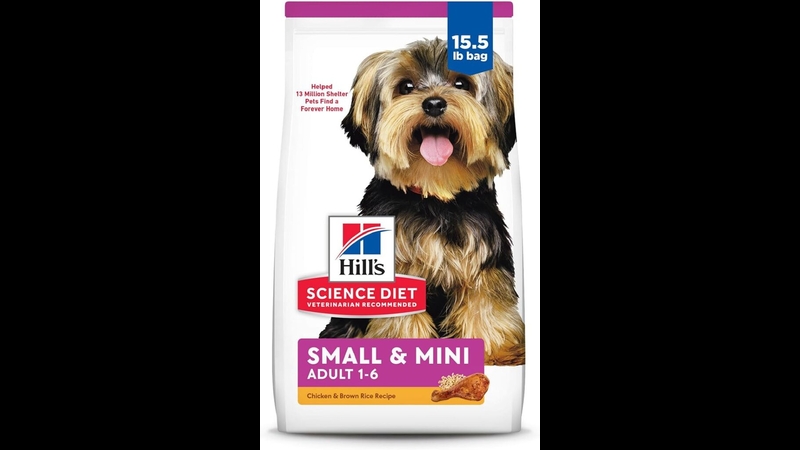
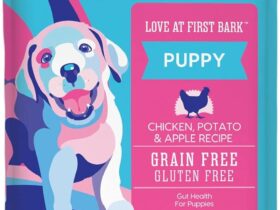
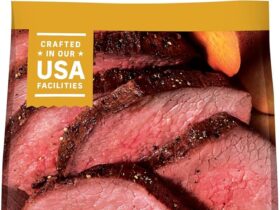
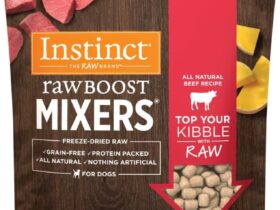



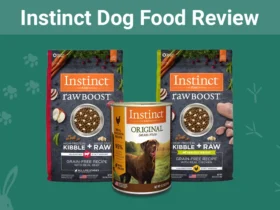
Leave a Reply